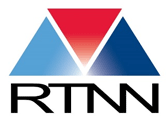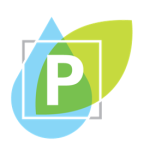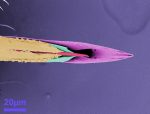
A big thank you to everyone who submitted an image in the 2021 Image Competition. We are excited to announce the winners. Please vote for these amazing images in the NNCI Image Contest, There’s Plenty of Beauty at the Bottom. Voting ends October 15th!
Most Stunning
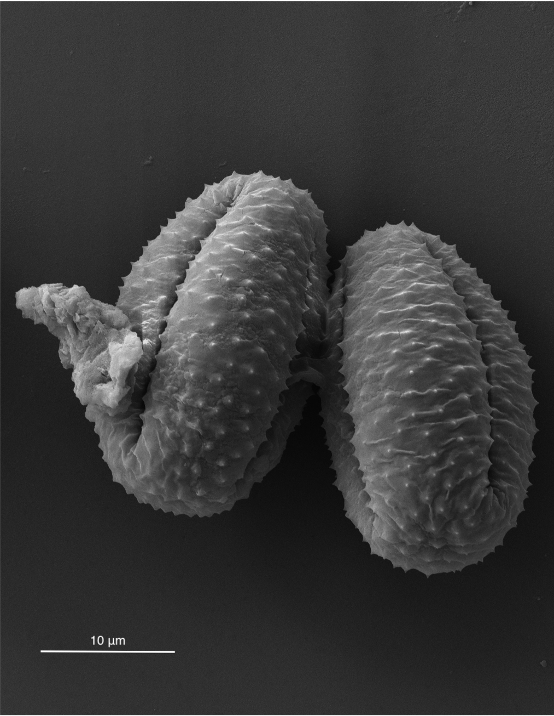
Lungs of Nature
Hanna Varga, Duke University
The image depicts particles from a dust sample collected on the California coast. This pair of pollen grains reminded the researcher of lungs.
Most Whimsical
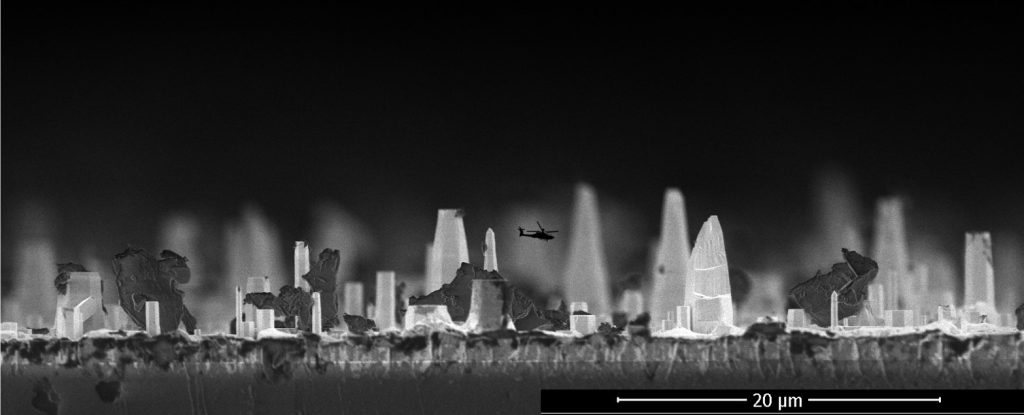
Dinos Take the City
James Loveless, NC State University
This sample is Gallium nitride grown on sapphire at very high temperatures. Remarkably, this surface was intended to be flat! At these extreme conditions, the crystal growth is often three-dimensional, and we discovered a city-like landscape of thin crystalline microstructures. I thought the dust particles looked like monsters akin to Godzilla, so I added a helicopter to help protect the city.
Most Unique Capability
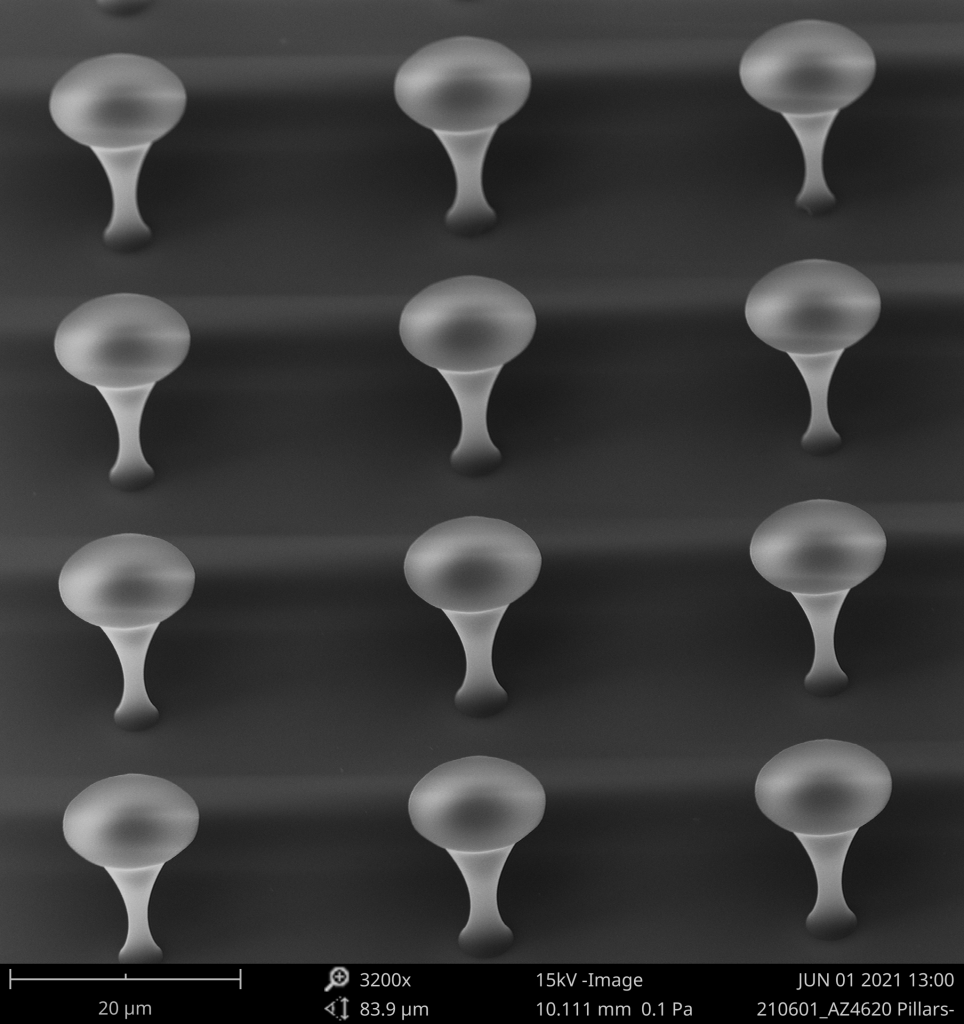
Our Cups Floweth Over
Greg Allion and Sravanthi Vallabhuneni, NC State University
Thick photo resist sculpted by utilizing light diffraction and image reversal. The visual beauty speaks for itself. Structures like these can be used to make super hydrophobic surfaces.
